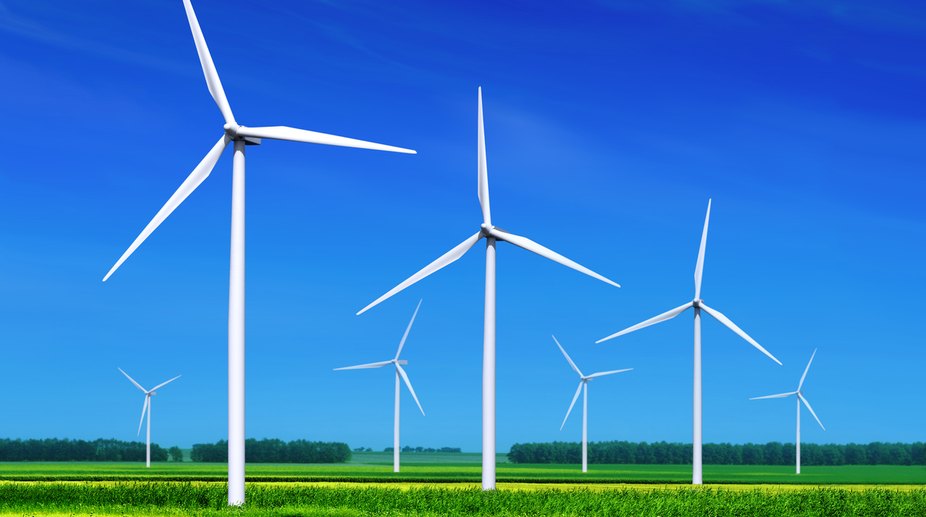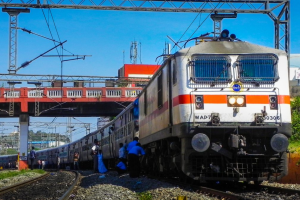The Ministry of Shipping is exploring the possibility of setting up 200 MW solar and wind energy projects on 1.5 lakh acres of land at Kandla Port in Gujarat, Union Minister for Shipping and Transport Nitin Gadkari said here on Tuesday.
The land is low-cost and economically viable for investment in solar and wind energy projects from which the energy can then be wheeled through the national grid.
Advertisement
"The cost of solar energy per unit has dropped to Rs.2.63 per unit and capital cost has also come down, which will help all ports cumulatively save Rs.600-700 crore annually," Gadkari said.
He was addressing a conclave on 'Green Ports and Oil Spill Management – 2017' in Mumbai organised by Indian Federation of Green Energy (IFGE) along with the Ministry of Shipping, Sagarmala, Mumbai Port Trust (MbPT), Indian Ports Association (IPA) and Shipping Corporation of India (SCI).
Besides the port sector, Gadkari said Sagarmala will have 14 industrial clusters with a cumulative investment of Rs 12 lakh crores as part of a port-led development that will also be cost effective and economically viable by consuming green power.
In his welcome remarks, IPA and MbPT Chairman Sanjay Bhatia said that keeping in mind the need for eco-friendly sustainable options, the conclave would deliberate on future green energy plans for ports as also standard operating procedure in case of oil spillage.
He said that at various international summits including the Earth Summit at Rio, to the recent Paris Convention, India has offered a commitment along with several countries located between the Tropic of Cancer and Tropic of Capricorn to produce green energy.
On MbPT, Bhatia said it would become a model for the entire country by ensuring that not an iota of waste would go out and the whole sewage would be completely recycled within a three-four years target.
IFGE Vice-Chairman Annasaheb Patil said that India currently imports 80-85 per cent of crude oil amounting to Rs.5 lakh crore and it was over Rs.7 lakh crore at peak prices, impacting the country's trade deficit.
Hence, the green initiative is significant not only from a national security perspective but also for employment generation within the country.
Indian ports, dotting the 7,517 km long coastline have embarked on a mission to promote green energy and improve carbon footprints and thereby reduce per capita power cost by over 50 per cent.
Major ports have so far commissioned 16 MW solar and six MW wind power projects to achieve the target of developing 175 MW of non-conventional energy from renewable sources by 2022, including 69 MW of Rooftop Solar Projects











